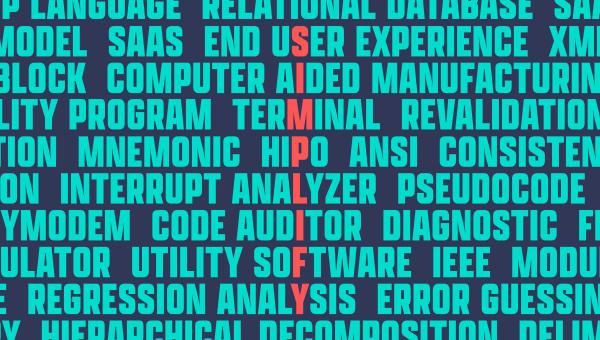Top Skills and Responsibilities of a Learning and Progress Specialist: A Complete Guide
Are you passionate about making a difference in teh world of education technology? If you aspire to work as a Learning and Development Specialist at a university, college, or school, this complete guide is for you. As the education sector rapidly evolves, institutions rely on skilled professionals to design and deliver impactful training programs for educators and staff. This article will explore top skills and key responsibilities of Learning and Development Specialists, along with practical tips for excelling in this role and insights into why this is such a rewarding career path.
What Is a Learning and Development Specialist?
A Learning and Development Specialist (L&D Specialist) in education technology focuses on creating, implementing, and evaluating professional development programs for educators, administrators, and staff within academic institutions. Their goal is to enhance teaching effectiveness, boost student outcomes, and facilitate the seamless integration of technology into curricula.
Where Do Learning and Development Specialists Work?
- Universities and community colleges
- K-12 schools and school districts
- Private schools and online learning organizations
- Educational technology companies partnering with schools
Top Skills Every Learning and Development Specialist Needs
The role of an L&D Specialist is multi-faceted, involving a blend of instructional design, tech-savvy, interaction, and people skills. Here’s a breakdown of the most in-demand skills for job seekers interested in this field:
1. Instructional Design Expertise
- Knowledge of adult learning theory and instructional best practices
- Ability to design engaging face-to-face, blended, and online learning experiences
- Experience with curriculum development and course architecture
- Proficient in using instructional design models such as ADDIE or SAM
2. educational Technology Proficiency
- Skilled in learning management systems (LMS) like Canvas, Blackboard, or moodle
- Familiarity with e-learning tools (Articulate Storyline, Captivate, or EdPuzzle)
- Understanding of multimedia production and authoring tools
- Ability to troubleshoot basic technical issues and support learners
3. Communication and Facilitation Skills
- Excellent presentation and public speaking abilities
- Ability to facilitate workshops and webinars for diverse audiences
- Clear written communication for creating learning materials, guides, and documentation
- Active listening to gather feedback and improve training outcomes
4. Data Analysis and Assessment
- Skills in evaluating programme effectiveness using qualitative and quantitative data
- Ability to analyze participant feedback and adapt learning solutions accordingly
- Experience with pre- and post-assessments or learning analytics
5. Project and Time Management
- Organizational skills to manage multiple learning initiatives simultaneously
- Strategic planning and scheduling of training sessions
- Deadline-driven approach and adaptability in fast-paced environments
6. Collaboration and Interpersonal Skills
- Working effectively with faculty, instructional designers, IT staff, and administrators
- Negotiation and conflict resolution skills
- Building trusting relationships to foster a culture of continuous enhancement
Key Responsibilities of a Learning and Development Specialist
Whether at a university or a K-12 school, the job description for a Learning and Development Specialist in education technology will typically include the following responsibilities:
- Training Program Design: Develop and update learning content, including workshops, webinars, modules, and self-paced materials for faculty and staff.
- needs Assessment: Conduct learning needs analyses thru surveys, interviews, and performance data to tailor programs to institutional goals.
- Technology Integration: Support the adoption of new educational technologies by providing training and ongoing support to educators.
- Facilitation and Delivery: Lead engaging, interactive sessions for individuals or groups, both in-person and online.
- Program Evaluation: Gather and analyze feedback, measure learning outcomes, and adjust programs for continuous improvement.
- Stakeholder Engagement: Collaborate with key stakeholders—including faculty,curriculum committees,and IT—to align professional development with institutional priorities.
- Documentation and reporting: Maintain accurate training records, prepare progress reports, and share success stories with leadership.
- Staying Current: Keep up-to-date with the latest in pedagogical research, educational technology trends, and digital teaching strategies.
Benefits of Working as a Learning and Development Specialist in Education Technology
Pursuing a career as an L&D Specialist in academia or schools offers a wealth of advantages beyond a competitive salary. Here’s why many job seekers find this role fulfilling:
- Positive Impact: Empower educators, improve student outcomes, and contribute to educational innovation.
- continuous Professional Growth: Stay at the forefront of technology, learning design, and pedagogical best practices.
- Collaborative Work Habitat: Work with passionate and diverse teams committed to lifelong learning.
- Work-Life Balance: Many educational institutions offer generous time off, flexible schedules, and remote work opportunities.
- variety and Challenge: No two days are the same! You’ll regularly tackle new problems and learn from others.
Practical Tips for Aspiring Learning and Development Specialists
Ready to launch or accelerate your career in L&D within education technology? These actionable tips will help you stand out:
- enhance Your Skills: Consider certifications in instructional design, eLearning development, or specific edtech platforms.
- Build a Portfolio: Assemble examples of workshops, e-learning modules, or training materials you’ve created.
- Network with Peers: Attend education conferences, webinars, or online forums like LinkedIn Learning and institutional events.
- Stay Current with Trends: Subscribe to edtech journals and blogs to keep your skills and knowledge fresh.
- Seek Mentorship: Connect with experienced L&D professionals who can provide guidance and insider tips.
- Demonstrate Impact: in interviews, share measurable outcomes and feedback from your previous training programs.
- Customize Your Application: Highlight relevant skills and experience in your resume and cover letter for each chance.
conclusion
The demand for Learning and Development Specialists in education technology continues to grow as universities, colleges, and schools strive to offer the best possible learning experiences.By mastering core skills in instructional design, technology integration, facilitation, and collaboration, you can make a lasting impact and accelerate your own career growth.Use this complete guide as your roadmap to success—and get ready to help shape the future of education, one training program at a time.

